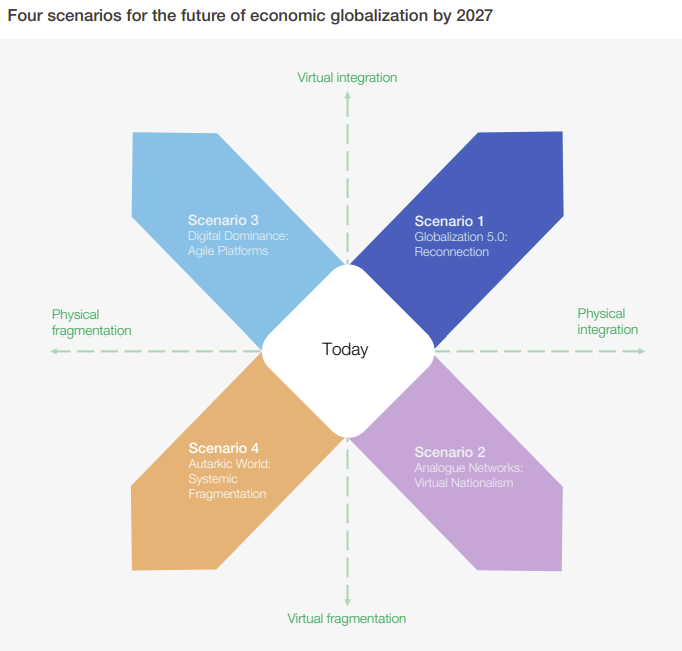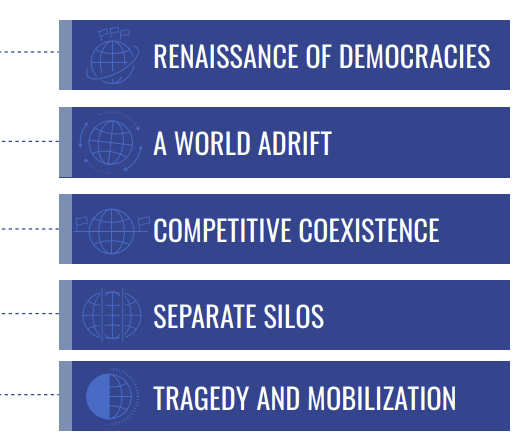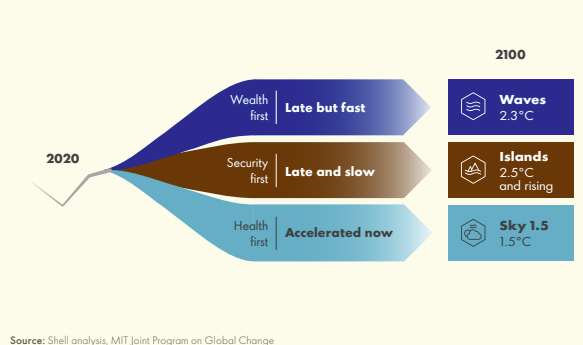Scenario planning is one of the most effective of the arsenal of foresight methodologies, helping open the minds of participants as they discover for themselves alternative possibilities.
In the 25 years I have been practising scenario planning, I have often found the most useful outcome for my clients has been that it has sensitized them to far better discern emerging trends, the “weak signals” that point to potential major shifts in the landscape.
Scenario planning for information filtering
In Thriving on Overload I shared some examples of using scenario planning for information filtering, noting that:
A richly developed set of scenarios is far more valuable than a simple prediction. Useful scenarios provide not just an evocative picture of each future, but also a plausible and detailed narrative of the sequence of events that led there. Our minds grasp stories and mental pictures far better than abstract ideas or concepts. Having a small set of future worlds helps interpret almost any new information by seeing where it fits among the scenarios’ narratives. If it doesn’t fit anywhere, then it can be even more useful by prompting revision of the underlying thinking.
Of course scenario planning is most valuable in the practice itself, exploring possibilities and pathways that are relevant to the decisions that you are your organizations must make.
Despite the massive strategic value of scenario planning, unfortunately only a minority of companies have the appetite for the in-depth process of exploring the possible futures of their industry.
Using public scenarios sets
However in your own information filtering and sense-making of our intensely complex world, you can draw on generic scenarios that are published by a variety of major organizations. Spending time with these can make it far easier to see the implications and import of emerging trends and news.
Here are a few scenarios that you may find useful to digest and apply to your sense-making.
World Economic Forum
World Economic Forum has a long history of deep scenario planning, formerly led by Ged Davis who came from leading Shell’s pioneering scenario planning group.
Their recent Four Futures for Economic Globalization shares perspectives on the global economy later this decade, providing a useful frame for unpicking directions in the macroeconomy and geopolitics.

U.S. National Intelligence Council
Various U.S. intelligence bodies, notably the CIA, have published global scenarios over the last decades.
While they clearly are U.S.-centric and focused on security issues, they do a good job of delving into underlying structural forces such as demographics, environment, technology, and societal tensions. Their most recent report Global Trends 2040 explores the landscape, dynamics, and provides a set of scenarios 20 years forward.

Shell
Shell originated modern scenario planning in the 1970s and it remains central to their strategic decision-making processes. They continue to share scenarios for energy and the environment. Their most recent report The Energy Transformation Scenarios examines in depth the scenarios and pathways for three different paths to the inevitable massive transition in energy.

Other scenarios
This is of course a very small sampling of the public scenarios available that you can use for your own sense-making.
In particular the major consulting firms all publish scenarios for the future of a wide variety of industries, which can be extremely useful for leaders in those sectors.
You will get the most value in identifying the most relevant information by creating your own sets of scenarios, but using publicly available ones can also be very helpful with minimal effort.
Sign up to our Tips for Thriving newsletter for weekly insights into how you can thrive on overload.
Read the book Thriving on Overload for distilled insights from information masters.
Take the Thriving on Overload Interactive Course to take your skills and capabilities to the next level.




